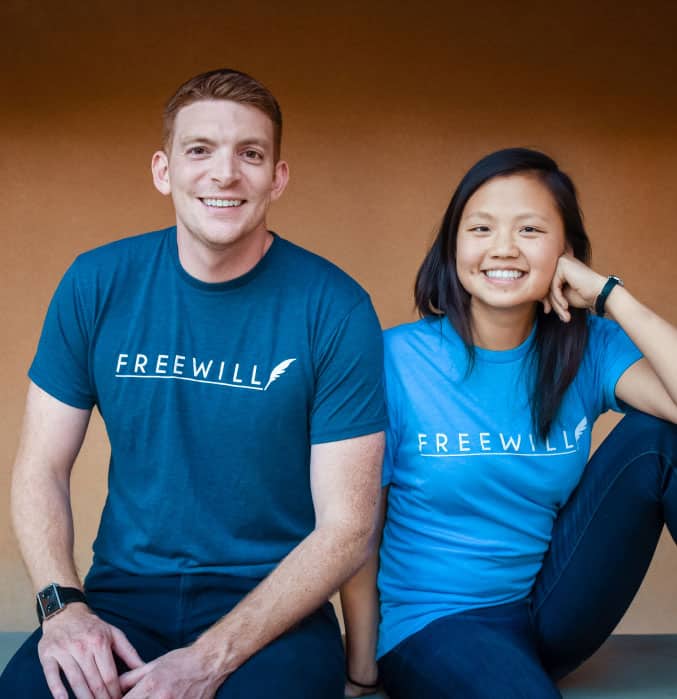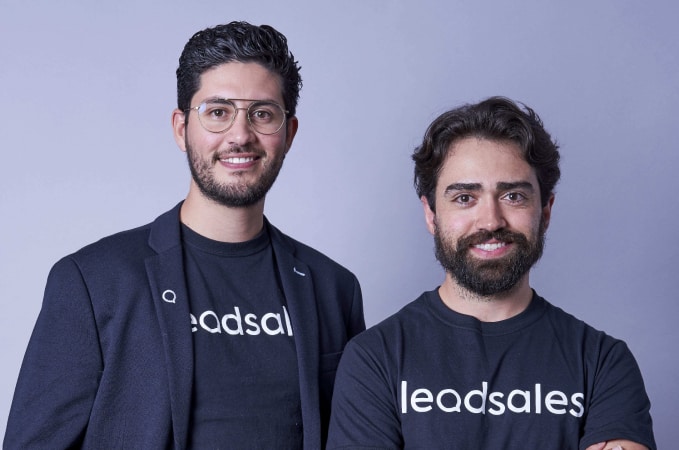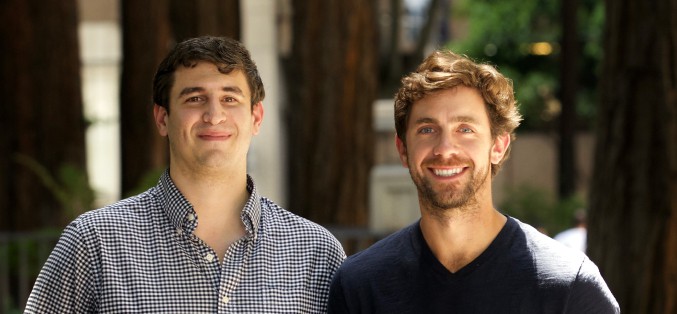Seed is
our passion,
our purpose,
our sweet spot.
Seed-stage investing is all we have ever done, and what we aspire to do best. For the Ulu team, seed is not the warm-up act for a bigger fund. It’s not something we do so that we can become Series A or B investors. We believe seed-stage investing is the highest leverage point to help people by creating valuable technology, generating profit, and leaving a dent in the universe. Here’s why.
As human beings, we find the conversations with early stage founders especially exciting and interesting. They feed our learning, curiosity and passion. Conversations with prospective Ulupreneurs aren’t just intellectually engaging, they’re often downright moving.
As investors, we are firm in our conviction that seed-stage investing generates the best returns in venture over the long term. It’s also the point on the capital formation curve that provides the highest leverage toward promoting diversity in entrepreneurship— something we believe is not only a social good, but an investment thesis that increases the probability a firm will go the distance.
As practitioners, we believe our team’s ability to quantify risk and return at the seed-stage puts us in a position to better evaluate the genius and potential of your seed-stage deal.




Are you a founder team with a big idea?
Venture, meet Ulu Ventures
14 years ago, Miriam and Clint started looking for, encouraging, funding, and supporting diverse teams, especially those other VCs were ignoring.
Ulu uses and improves frameworks and tools that remain the state of the art for making capital allocation decisions in highly uncertain environments. As a bonus, these same tools and practices help us reduce our implicit biases (all people have implicit biases–humans need “shortcuts” to navigate the world, biases are short cuts).
We also invested in building community at Stanford, a longtime and global cradle of high-tech entrepreneurship, by helping found Stanford Angels & Entrepreneurs (now 1,500 people strong in Silicon Valley alone, many more worldwide—and growing).
In the early years, our founders invested their own capital. The truth is that institutional investors weren’t yet ready for a married investment team excited to use math, cognitive research, and decision science in funding diverse founder teams.
It turns out we were “right”; Ulu has helped fund some extraordinarily successful companies created by diverse and exciting founder teams—who are now “exiting” through public offerings.
Being contrarian and “right” helped the firm take the next big steps, raising a first and second institutional fund (from $3.5M, to $66M, to $138M), as well as building our own talented and diverse team.
We call the amazing group of human beings who found companies in which we invest Ulupreneurs.
They are founders supported by us as investors and as team members, all playing a part to turn deep insights and big ideas into companies capable of changing the world for all of us.
Ulu Ventures is an investment firm, powered by a vision, driven by a mission, and brought to life by a vividly textured and diverse ensemble of human beings.
The company was born from the lived experiences of our founders, Miriam Rivera and Clint Korver. Our origin story is grounded in three observations that lead to three Big Ideas.
The first observation
is that founder-led companies have played an outsized role in shaping all aspects of the world in which we live. Today, we think about Meta, Amazon, Netflix and Alphabet. 150 years ago, our first thoughts might include U.S. Steel (Andrew Carnegie) or Walt Disney’s media empire.
Big idea 01
If we want to help change the world for the better, the place to start is by investing in early-stage founders with the insights, ideas, and energy to do that.
The second observation
is that the capital and support founders and startups need disproportionately flows from white men to other white men. Nearly all (~98.7%) the capital in the entire world is managed by investment firms led by white men, despite the fact that much of that capital is comprised of the pension assets of diverse US municipalities, teachers, and state pensioners.
And so diverse potential founders remain on the outside looking in.
Not because they lack insight or inspiration.
Not because they fail to conceive of a big idea.
Not for a paucity of intelligence, grit, energy, talent, or any other potential signal of future greatness.
They just can’t get access.
Big idea 02
Think about it: If everyone is looking over here, and there are a whole lot of smart, motivated, talented, and skilled people over there, where would you look?
Ulu’s strategy is not just “the right thing to do,” it is also smart business as proven by our portfolio performance and research: diverse startup founder teams out-perform non-diverse founder teams. We believe in the “Big 8” social identifiers and invest in diversity be it ability, age, ethnicity, gender, race, religion, nationality, sexual orientation, and/or socio-economic status. Because diversity means all of us working together, so we invest in big, great ideas brought to us by all kinds of founder teams.
The third observation
is that there is a substantial and highly validated body of thought and practices for evaluating capital allocation decisions, ones with long feedback loops and lots of uncertainty.
Think oil and gas discovery and pharmaceutical R&D.
In both cases, people must allocate money today across a large number of potential oil wells or compounds, and they won’t know the results for many years down the road. So when quality decisions matter, industry turns to measurably better practices.
Yet that’s not how early-stage venture capital works.
Faced with a similar dynamic, venture investors are notorious pattern matchers (“this looks just like something we or someone else successfully funded”). Pattern-matching spares investors from having to use rigorous, repeatable frameworks and tools for evaluating risk.
Big idea 03
Use proven, best practices for making big decisions in environments of uncertainty to—wait for it—make venture capital decisions in environments of uncertainty.

What does “Ulu” mean?
When people meet us, their first question is often “What does Ulu mean?” The firm’s founders, Miriam Rivera and Clint Korver, made indelible memories in Hawaii, so when they created the firm, they wanted to find a word significant to them that was also meaningful in Hawaiian culture. Miriam and Clint picked Ulu, which in Hawaiian means “breadfruit”—figuratively, it means “to grow, to inspire, to be possessed as if by a spirit or god.” Ulu expresses the power and purpose of entrepreneurship.
In alignment with Ulu Ventures’ values of transparency and authenticity, we acknowledge, honor, and make visible our connection to Native peoples. Ulu Ventures is located on the ancestral land of the Muwekma Ohlone Tribe, land that was and continues to be of great importance to them and to the world now as Silicon Valley.
We thank the Kānaka Maoli (Native Hawaiians) and their language, Ōlelo Hawaiʻi, for our namesake. We acknowledge one of our firm founder’s ancestral ties to Iowa, home of the Meskwaki Nation, or the “People of the Red Earth” and formerly the Dakota Sioux, from whose language the state derives its name, as well as the Ioway, the Illini, the Otoe, and the Missouria. We further acknowledge our other founder’s ancestral ties to Africa and to the Taino, the pre-Columbian people of Puerto Rico and other parts of the Caribbean.
to grow, to inspire, to be possessed as if by a spirit or god.”

